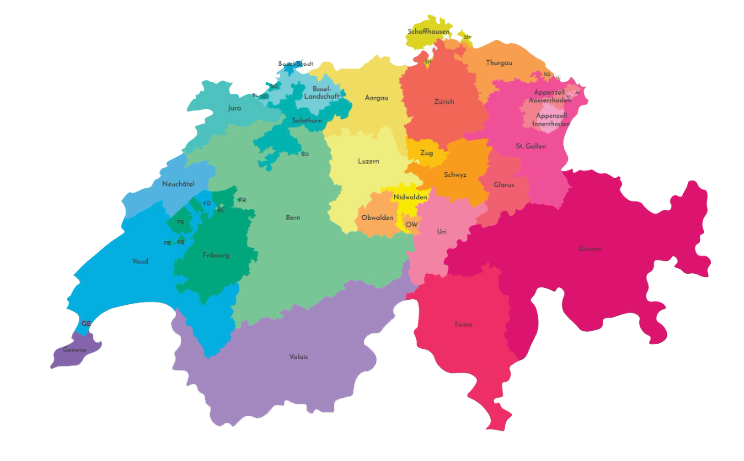Country sites
For 2023-2028, ADVANCE will aim to showcase how mental health promotion and prevention interventions (digital, in-person, and combined) from youth to old age can be brought to the places where people live, learn, and work in cost-effective and scalable ways. The study will focus on six countries: Lithuania, Germany, the Netherlands, Italy, Denmark, and Switzerland.

Lithuania
In Lithuania, our focus is on young adults affected by socio-economic adversity. We examine mental health and vulnerability in youth, and will test outcomes of a novel chatbot intervention for youth in collaboration with the WHO. Our approach extends beyond the individual, involving various stakeholders, youth organizations, mental health and social care providers, educators, and policymakers to understand system-level barriers for scaling up.
Our focus in Germany involves a detailed examination of climate change-affected youth. We're particularly interested in understanding the varying levels of engagement needed for areas impacted by extreme weather events and populations experiencing climate change related distress. To ensure a holistic perspective, we're actively involving young affected persons as well as young climate change activists in the co-creation process. Additionally, we're collaborating with broader system stakeholders, including health care providers as well as policy advisors active in the field of climate and health, to ensure a comprehensive understanding of the challenges and opportunities in this context


The Netherlands
In the Netherlands, we focus on comprehending and enhancing the mental well-being of employees in Dutch small and medium-sized businesses (SMEs) amidst the evolving landscape of workplace digitalization. To achieve this, we will implement a multilevel intervention approach, with one intervention aimed at managers and the other at managing stress among employees. To ensure a well-rounded approach, we're including end-users (managers and employees in SMEs), occupational health advisors and experts, clinical psychologists, occupational health umbrella organizations, and mental health regulators.
Italy
In Italy, we start with identifying adult migrant groups facing vulnerability. We aim to gain a deep understanding of their needs and explore effective strategies for promoting their mental health. To ensure a comprehensive approach, we are working on solidifying pathways for recruitment on a larger scale, which includes leveraging social service delivery channels. Collaboratively, we involve migrants, their family members, and health and social service providers (NGOs) to gain insights into the system-level barriers and facilitators for scaling WHO mental health interventions.


Denmark
In Denmark, our emphasis is on tailoring our approach to a specific migrant group. Our goal is to identify both barriers and facilitators to delivering SH+ alongside existing social integration services. To achieve this, we're engaging in consultations with municipalities, which serve as regulators of health and social services for migrants. Additionally, we're collaborating closely with NGOs that focus on migrant issues. This collaborative effort aims to enhance our understanding of the challenges and opportunities in delivering mental health support to migrants in Denmark.
Switzerland
In Switzerland, we focus on older adults. Mental health and cognitive functioning are pivotal determinants of quality of life in older adults, a group that is steadily increasing, particularly in highly developed nations such as Switzerland. Our study aims to implement and evaluate two major strategies for stabilizing well-being and preventing cognitive decline in older adults: stress-management training and cognitive training, as well as their combination. By conducting a randomized controlled trial including older adults in different language areas of Switzerland, we additionally aim to understand the barriers and facilitators for scaling up these interventions. To ensure a comprehensive perspective, we are consulting with different relevant stakeholders, including older adults themselves, senior citizen organizations like Pro Senectute, and regulators and providers of geriatric health and social services at both private and public levels, both locally and nationally.

